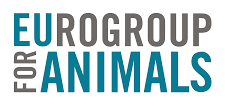
Scientists, industry leaders and other specialists discussed why an action plan for the active elimination of the use of animals in experiments is needed and provided examples of tools and existing procedures, which could soon be implemented by the European Commission.
The Intergroup on Animal Welfare and Conservation organized an extraordinary meeting on accelerating the transition to animal-free innovation , in partnership with the Eurogroup for Animals and Humane Society International / Europe.
This extraordinary session included a round table on the possibilities offered by the resolution recently adopted by the European Parliament on an action plan for the transition to animal-free innovation "with the aim of promoting active elimination by reducing, refining and replacing live animal procedures for scientific and regulatory purposes. "
The idea of phasing out animals used in laboratories is not new and was mentioned in Directive 2010/63 on the protection of animals used for scientific purposes. With this September resolution, however, the EP recognized that an active and coordinated approach to the reduction and ultimately the complete replacement of animals has not been achieved. By demanding an EU-wide action plan with an ambitious timetable and a list of milestones, the EP aims to actively promote the phasing out of animals used for scientific purposes.
Kirsty Reid, Director of Science Policy at the European Federation of Pharmaceutical Industries and Associations, stressed the need for closer collaboration and mentioned the good collaboration that exists between industry and civil society, such as the partnership with Humane Society International on the removal of an outdated animal-based safety test for certain pharmaceuticals. She underscored her belief that government agencies and regulators need to put more trust in innovative methods.
One of the central ideas of the resolution is to promote new technologies capable of replacing animal models by providing data that is more relevant to human biology than animals. One of these technologies is organs on chips.
Thibault Honegger, CEO of the Neuro Engineering Technologies Research Institute, explained why organs on a chip are so often described as a breakthrough technology capable of mimicking aspects of human biology better than animals or simpler in vitro models. Honegger provided examples of organ-on-a-chip in use right now, like the Parkinson's chip device and the one being used to develop pain therapy, which are already having a direct impact on human health, in ways that don't. could not have been achieved using animals. From his point of view, what the EC must include in the action plan is a comprehensive approach covering the entire production chain and the improvement of bio-banks and cell databases, as well as a working group dedicated to stakeholders as in the United States.
Another point underlined by the EP resolution concerns education in non-animal methods. There is no point having the most advanced technologies in the world if very few people know how to use them. Professor Beatriz Silva Lima, Dean of the Faculty of Pharmacy at the University of Lisbon, suggested that the EU, in order to promote the knowledge and use of new advanced non-animal methods in university research, should make these methods more accessible to researchers, because animal experimentation is even cheaper today. So even though there are various new cutting edge technologies (eg organoids and organs on chips), they are sometimes not affordable. Professor Silva Lima also highlighted the need to facilitate access to human tissues and cells in order to foster the faster development of human-based models.
Professor Ingrid Visseren-Hamakers from Radboud University shared her view that the European Commission, in order to ensure that this plan leads to significant reductions in animal use, improves health research and produces economic benefits, should link the action plan to other policy areas. Animal-free science is part of a larger set of trends, including a change in attitude towards non-human animals. The EU's green deal demands that we protect human health and the environment and to achieve this we need new science, relevant science for people and transformative change. If we transform our society, for example by using fewer chemicals and pesticides, changing our diets and switching to a preventative curative system, we would need less animal testing and could proceed with the implementation. laws and policies that support a shift to non-animal methodologies.
Anja Hazekamp, president of the intergroup, concluded by informing the audience that the intergroup will now request a meeting with the European Commission to share the conclusions of the event and discuss views on Parliament's appeal in favor of an action plan.
Notes
Agenda Accelerating the transition to animal-free innovation: Steps for an action plan to phase out animal experiments
Israeli scientists recently developed a cancer drug without any animal testing using microarrays with human kidney, liver and heart cells. "Organs-on-a-chip" represent a new market sector growing rapidly at a rate of 28% per year, which means that the size of the market will be multiplied by 7 by 2030 according to the projections.
Posted on 2021-11-17 15:47








Comments